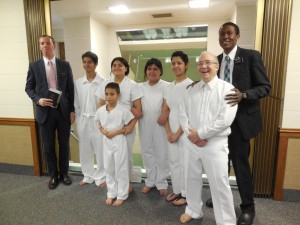Thought I would share the following picture of my friend, Tyler. Tyler (far left) decided to serve an LDS mission a bit later in life. For Tyler, this was not an easy decision. A very critical thinker, Tyler has studied the works of scholars such as Richard Bushman, Dan Vogel, Brent Metcalfe, and Earl Wunderli to better understand his religious tradition from a variety of angles. Tyler was also an avid listener to John Dehlin’s Mormon Stories podcasts. Tyler sent... Read more
















